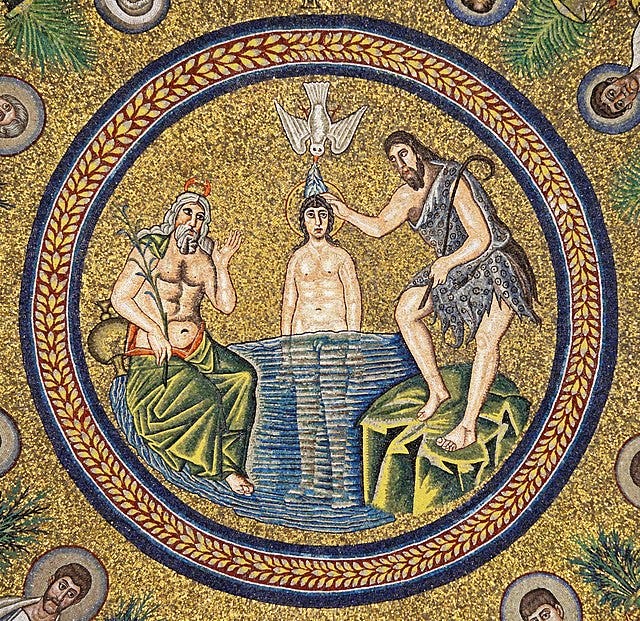There is the age-old question of how Jesus, the Jewish prophet from Galilee, eventually became identified with and even as the God of Israel.
I thought I’d share three quotes from three great scholars who have their own answer to this question, looking at the continuity and discontinuity between who Jesus claimed to be, and who the church acclaimed Jesus to be.
First, Dale Allison, a preeminent scholar on Jesus and the Gospels:
“[A]ll the primary sources repeatedly purport that Jesus had astounding things to say about himself. One can dissociate him from an exalted self-conception only through multiple radical surgeries on our texts” and “We should hold a funeral for the view that Jesus entertained no exalted thoughts about himself.”
Dale C. Allison, Constructing Jesus: Memory, Imagination, History (Grand Rapids, MI: Baker, 2010), 225, 304.
Second, Gabriele Boccaccini, a leading scholar on Enochic texts, and second temple Judaism:
“If Jesus claimed that he, as the messiah or an agent of the messiah, had authority to forgive sins ‘on earth’ before the manifestation of the Son of Man as the final Judge at the end of times (Mark 2:10), he must have been regarded by his followers as an individual already having some degree of ‘divine’ authority (Mark 1:27)”
Gabriele Boccaccini, “Jesus the Messiah: Man, Angel, or God? The Jewish Roots of Early Christology,” AscR 4 (2011): 193-20 (202.)
Third, Jörg Frey, a German scholar with expertise on, well, almost everything in ancient Judaism and early Christianity:
“The earthly mission of Jesus, his words and his deeds, the view of God and the idea of discipleship conveyed through him, were now considered to be confirmed and, at the same time, thoroughly transformed through the events of Jesus' death and resurrection. Radical discontinuity -which should not be underestimated- was complemented by a continuity, formed by the memory of the former disciples and a resumption of the practice of common meals and probably also a common lifestyle, especially among the wandering missionaries of the early period. The hitherto implicit Christology, the claim of eschatological authority and a decisive eschatological relevance of his person, became transformed into an explicit Christology, based on the new consideration of how God had eschatologically acted, on the interpretation and combination of Scriptural traditions and on the awareness of the bestowal of the Spirit. Whereas Jesus had primarily spoken of God and God' salvific intentions, he himself could now become the object of proclamation, veneration and belief. He himself became part of the «kingdom of God» he had once proclaimed. He was the one whom God had raised from the dead and installed into his glory, whom he had justified and enthroned. Thus, the relevance and real identity of Jesus had to be proclaimed explicitly -by use of functional terms, which soon became more or less fixed as «titles». The proclaimer was now the proclaimed one, and the foremost theme of early Christian reflection was Christology.”
Jörg Frey, “Continuity and Discontinuity Between ‘Jesus’ and ‘Christ’: The Possibilities of an Implicit Christology,” RCaT 36 (2011): 69-98 (95).





"identified with and even as the God of Israel." A pox on this confused and confusing neologism from Wright. "identified with" means "closely associated with." Who would deny that in the NT Jesus and his and our God are indeed very closely associated with one another? Socinus would be happy to agree. But "even as the God of Israel" means the idea that Jesus and God are one and the same, that Jesus just is God himself - which is a lamentable confusion. We do see it relatively early on, in the modalist monarchians who rejected the then-new logos theory understanding of the key texts. But trinitarian tradition is self-consciously rejecting modalism, on the face of it. Still, arguably, some trinitarians do think something like this, just with the modes all being eternal and essential to God. And yet, any Christian ought to deny that Jesus and God are one and the same, as any of us thinks that they have simultaneously differed from one another. Finally, let the wise reader note that none of the quotations here from the three scholars supports confusing together Jesus and God in this way.
Could it be that the Gentile Christian, i.g., Romans, had a different understanding of a person being declared divine? So, rather than Jesus being God in essence or being (a Platonic view) he is considered God or divine because of his benefactions.